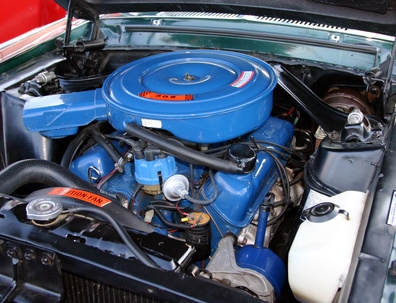
When someone says he has a blown engine, what he usually means is the engine is dead or doesn't run. A more mechanically minded car owner will narrow it down and say that the rings are shot or the engine blew a gasket. Even the experts don't always agree on the definition of a blown engine. The only common denominator among the various diagnoses is that it's time to rebuild or replace the old motor.
Look for large puddles of oil or antifreeze underneath the engine. Check for obvious signs of damage such as large cracks, a connecting rod protruding from the block or a hole in the oil pan from a rod or the crankshaft.
Pull the dipstick and inspect for water or antifreeze in the oil. Take off the radiator cap on a cold engine and look for the opposite -- a scum of oil floating on the antifreeze. Either can suggest a bad head gasket, but it also could mean there's a hole in the block between the oil galleys and water jacket or even a hole in the cylinder wall.
Turn the engine over using the starter. If the engine won't crank, turn it over by hand with a socket wrench on one of the engine pulleys. Listen for unusual noises as you do so. Suspect broken rods, pistons or other fatal problems if the engine makes grinding, metallic sounds as it turns or won't turn at all.
Remove all the spark plugs on an engine that will still turn over, especially if it turns over suspiciously fast. Check the compression. Extremely low compression in some or all of the cylinders is what many experts call a blown engine. Have a shop do a leak-down test to determine where and just how bad the damage is but be prepared for the likely news that it's time to rebuild the engine.
Connect an oil pressure tester to an engine that will still run, especially if it belches blue smoke or knocks. Suspect worn main and rod bearings if the pressure is low.
Total up the cost of fixing your blown engine before you give the go-ahead for repairs. Be brutally honest with yourself about the overall condition of the engine and the vehicle it's in. When replacing or rebuilding major engine components, one thing often leads to another. Make sure you know the total bill before you start.